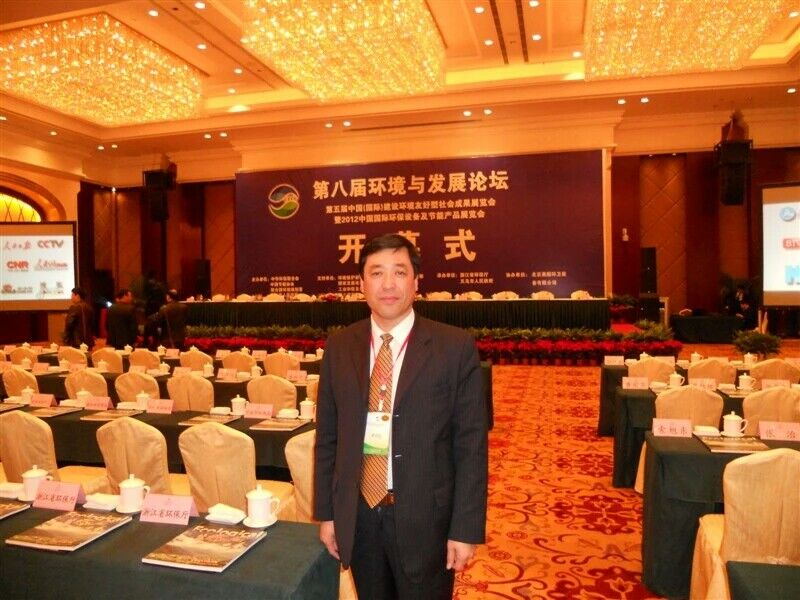»Υ²É¨Π(du®§)ΓΑ÷–΅χ Ϋ”Δ’Z(’™â·)Γ±Ώ@²Ä(g®®)‘~’Z–Ρ¥φ¥σΦ…ΓΘ»ΜΕχ����Θ§èΡ’Z―‘¨W(xu®Π)Ϋ«Ε»¹μΩ¥Θ§Chinglish ≤Δ≤Μ «ΌHΝx‘~�����ΓΘΟά΅χΓΑ»Ϊ«ρ’Z―‘±O(ji®Γn)ΕΫΓ±ΒΡôC(j®©)‰΄(g®Αu)àσ(b®Λo)Ηφ÷Η≥ω����Θ§κS÷χ÷–΅χ΅χΝΠΒΡΧα…ΐΘ§÷–΅χ Ϋ”Δ’Z’ΐ‘Ύ¨Π(du®§)΅χκH”Δ’Z–Έ≥…Ήνèä(qi®Δng)Ν“ΒΡ¦_™τ��Θ§Ώ@°î(d®Γng)÷–Αϋά®¥σΝΩ÷–΅χ’ΰ÷ΈΫ¦(j®©ng)ùζ(j®§)ΒΡ–¬‘~ÖR”Ω»κ��Θ§“≤Αϋά®”…÷–΅χ ΫΥΦΨS‘λ≥…ΒΡΓΑ―σ¦ήδΚ”Δ’ZΓ±�Θ§Τδ÷–”–³™(chu®Λng)‘λ–‘ΒΡ“Μ≤ΩΖ÷Ω…ΡήΏM(j®§n)»κ‰Υ(bi®Γo)€ (zh®≥n)”Δ’Z�ΓΘ
Some people say global English is no longer just dominated by British English or American, but is running free and developing uniquely regional forms. Can you figure out the following terms?
"I like your smile, but unlike you put your shoes on my face." This is a way of saying "Keep off the grass." Or "people mountain, people sea," which means "very crowded."
"In our local swimming pool, there is a sign on the wall; and in Chinese, it says "no diving." Of course, that's quite sensible, but somebody translated it as "no swimming." So if you don't speak Chinese, and you go to the swimming pool, you see sign on the wallΓ≠"
These examples are what we call Chinglish, which is a combination of English vocabulary and Chinese grammar or expresssion. When it comes to Chinglish, if all you know is "good good study, day day up," you will be considered "out man."
Nowadays, more Chinglish words have been created, for example, the Chinese term "–ΠΕχ≤Μ’Z"has been translated as "smilence", a combination by the English word smile and silence. It means "say nothing but smile."
Chinglish usually offers a humorous and insightful look at misuses of the English language in Chinese street signs, products, and advertising. They are favored by some English speaking tourists and visitors. Dominic Swire has been living in Beijing for a couple of years.
"I think many Chinese people complain about the Chinglish and badly translated English. But you know, sometimes for us foreigners, it's actually quite charming to see and also quite humorous. I think if the translations of English in China were all perfect, then something would be lost from Chinese culture."
However, Chinglish will probably become a "cultural relic" in the near future. In September this year, Beijing initiated a plan to eliminate Chinglish signs in the city. It's a comprehensive plan to improve foreign language services and eliminate Chinglish within five years.
Chen Guohua, Deputy Director of the National Research Center for Foreign Language Education says:
"In many scenic spots, people can see Chinglish on the signs, and it's very ridiculous. And they are a kind of barrier for communication between Chinese and people from other countries, I think they should be avoided."
Chen Guohua adds, if there is already a sensible saying in English, we'd better use correct English. If it's something unique to China, and there is no such saying in English, then people can use the Chinese expression. But, it's important that the expression can be understood by foreigners.
Some Chinese university experts side with Chinglish. They argue English has absorbed elements from other languages such as French and Spanish in its growth, and the emergence of Chinglish again testifies to the language's vitality and inclusiveness.
(¬ïΟςΘΚ±Ψ’ΨΥυ Ι”ΟàDΤ§ΦΑΈΡ’¬»γüoΉΔΟς±Ψ’Ψ‘≠³™(chu®Λng)ΨυûιΨW(w®Θng)…œόD(zhu®Θn)ίdΕχ¹μ�Θ§±Ψ’ΨΩ·ίdÉ»(n®®i)»ί“‘Ι≤œμΚΆ―–ΨΩûιΡΩΒΡΘ§»γ¨Π(du®§)Ω·ίdÉ»(n®®i)»ί”–°êΉh�����Θ§’à(q®Ϊng)¬™(li®Δn)œΒ±Ψ’Ψ’ΨιL�ΓΘ±Ψ’ΨΈΡ’¬‰Υ(bi®Γo)”–‘≠³™(chu®Λng)ΈΡ’¬Ή÷‰”Μρ’Ώ πΟϊ±Ψ’Ψ¬…éü–’Οϊ’ΏΘ§όD(zhu®Θn)ίdïr(sh®Σ)’à(q®Ϊng)³’(w®¥)±ΊΉΔΟς≥ωΧéΚΆΉς’Ώ�Θ§Ζώ³t¨ΔΉΖΨΩΤδΖ®¬…Ίü(z®Π)»ΈΓΘ) |










